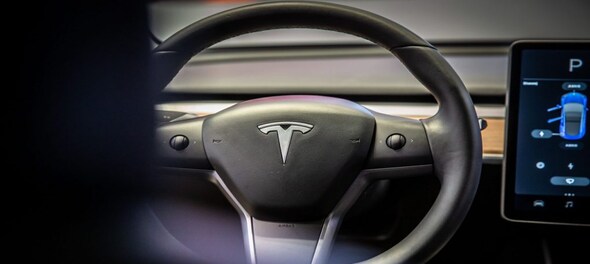
The government may allow an extension in income tax rebate on electric vehicles (EVs) for two more years as part of its Budget 2023 announcements, sources informed CNBC Aawaz. In 2019, the Centre introduced Section 80EEB of Income Tax to give EV rebates. The deadline for the same is March 31, 2023. If this is extended, the new deadline will end on March 31, 2025.
Live TV
Loading...
What is this section about?
Section 80EEB of income tax allows a deduction on interest paid on loans taken for an EV purchase. According to this section, if you buy an electric vehicle, you can get tax deductions of up to Rs 1.5 lakh on interest paid on the loan amount on acquiring an electric vehicle.
The deduction is available for both personal and/or business purposes. The deduction under this section would be available till the repayment of the loan.
One must understand that the deduction applies only to interest paid and not to the principal loan amount payment.
What are the eligibility criteria for the same?
Thus, if you are a HUF, AOP, partnership firm, company, or any other kind of taxpayer, you cannot claim any benefit under this section.
How to avail benefits?
Individual taxpayers should obtain the interest-paid certificate and keep the necessary documents, such as tax invoices and loan documents, handy at the time of filing of income tax return (ITR), according to Clear.
To claim as a business expense, the vehicle must be registered in the name of the owner or the business enterprise.
What are the conditions for claiming the deduction?
The loan must be taken from a financial institution or a non-banking financial company for buying an electric vehicle and must be sanctioned anytime during the period starting from April 1, 2019, and March 31, 2023, as of now.
The Indian two-wheeler EV market is growing at a much faster pace with 250 per cent y-o-y growth witnessed in 2022. But, the EV ecosystem is in its nascent stage, the incentives & policies put forward in the Union budget 2022 were successful to some extent, yet needed some amendments & additions that we remain positive in the upcoming Union Budget 2023-24.
Other Budget expectations of EV sector
Sumit Chhazed, CEO and Co-Founder at OTO proposed uniformity on the GST of spare parts.
"On taxation, the GST on EV spare parts is said to be levied at 5 percent, yet, lack of clarity has led the industry to end up paying 28 percent, hence a uniformity on the GST of spare parts is expected. PLI scheme to promote electric mobility adoption favours major corporates, startups and MSMEs remain ruled out a level playing field for the category needs to be ensured," he said.
First Published: Jan 19, 2023 2:46 PM IST
Check out our in-depth Market Coverage, Business News & get real-time Stock Market Updates on CNBC-TV18. Also, Watch our channels CNBC-TV18, CNBC Awaaz and CNBC Bajar Live on-the-go!


Lok Sabha elections 2024: From Wayanad to Shivamogga, key battles in the second phase
Apr 25, 2024 2:01 PM
EC probes allegations of MCC violation by Modi, Rahul; seeks response by April 29
Apr 25, 2024 1:32 PM
LS polls phase 2: Rahul Gandhi, Shashi Tharoor in fray; Hema Malini, Om Birla eyeing hat-trick
Apr 25, 2024 12:19 PM
UP constituencies to witness three-cornered fight in second phase tomorrow
Apr 25, 2024 10:47 AM

